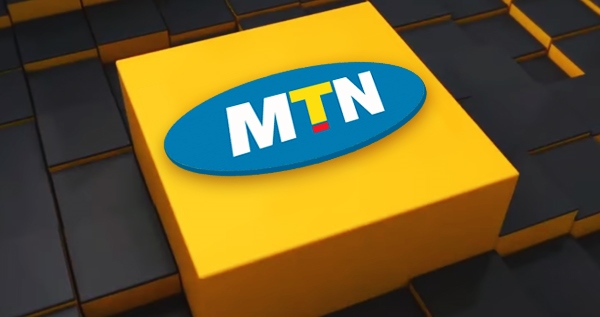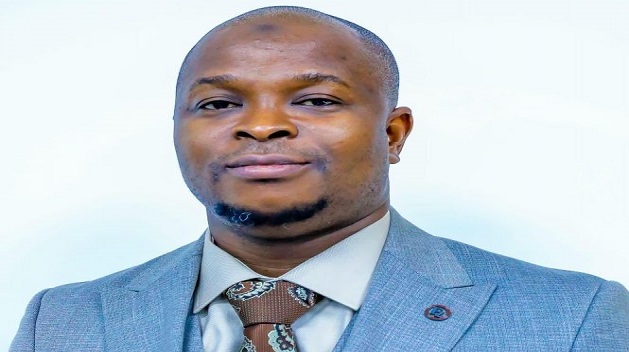Telecom
Elsa Muzzolini, Others Advice Fintechs on Finding and Leveraging Partnerships

Elsa Muzzolini, General Manager, Commercials & Mobile Financial Services, Y’ello Digital Financial Services, has listed three things fintechs need to do in finding and leveraging the right Partnerships.

Muzzolini who was a panelist at the first episode of Tech Cabal’s The Fintech Series on the topic, “How to find and leverage partnerships to grow startups,” listed the three things fintechs need in their early stages as time, clarity, and a contact person when looking to enter a partnership with a big corporation.
She explained that startups are not usually in the position to determine the operations and pace of bigger corporations. It was therefore crucial that they propose and agree on a timeline in their favour to ensure that their partnership negotiations are prioritized.
On clarity, she advised startups to be straightforward and clear on the scope and terms of the partnership.
She also stressed the need for startups to have a reliable contact person within the organization they seek to partner with, instead of relying on emails.
Earlier, Mayowa Kuyoro, Partner and Head of West Africa Financial Services, McKinsey & Company, set the context and tone of the panel discussion, speaking on the five emerging partnership models – classic vendor relationship, distribution, strategic investment, joint venture, and acquisition.
In line with Muzzolini’s advice, Majekodunmi emphasized the importance of seeking out the right persons in organisations where founders seek partnerships.
She also went on to speak on her biggest lessons as a fintech co-founder, especially in ensuring that smaller startups do not bind themselves to unfair contractual terms.
“There are three levels of partnerships: regulatory, infrastructure, and physical investments.
“Always have a trial period before signing on any (partnership) contract as this will help provide clarity on how the partnership will work and help level the playing field.”
Oviosu encouraged startups to not think in terms of what they can benefit from partnerships alone but what they can contribute to the company they seek to partner with.
He also named this as one of the ways to win companies over.
“Try to understand what the needs of the other company are and how you can help them meet those needs. Make sure there is value on the table for every party,” he said.
Other members of the panel were the Founder/CEO Paga, Tayo Oviosu, CEO, Chaka Stocks, Tosin Osibodu, Co-Founder/CEO, BanklyNg, Tomilola Majekodunmi, CEO, Sterling Bank, Abubakar Suleiman, and Operation Director, Africa, Ria Money Transfer, Robert Kotei. The panel discussion was moderated by Topsy Kola-Oyeneyin, Global Partner, McKinsey & Company.
Telecom
Study Shows Blocks in Telegram are Pushing the Underground Out

Modern messengers, such as WhatsApp, Telegram, Signal and others, are often used for illicit purposes. Kaspersky Digital Footprint Intelligence has conducted an in-depth monitoring of over 800 blocked cybercriminal Telegram channels between 2021 and 2024.

While a range of illegal activities continues to be hosted on the platform, its environment has become noticeably more challenging for sustained underground operations.
Telegram’s bot framework and other built-in features make for a low-effort ecosystem for the underworld.
A single bot can simultaneously manage queries, process cryptocurrency payments, and instantly deliver stolen bank cards, info-stealer logs, phishing kits, or DDoS attacks to hundreds of buyers per day, often without operator involvement.
Unlimited, non-expiring file storage eliminates the need for external hosting when distributing multi-gigabyte database dumps or stolen corporate documents. This frictionless automation naturally favours high-volume, low-price, low-skill offerings, such as leaked bank cards or other data, hosting malware, etc.
High-value, trust-dependent deals (for instance, zero-day vulnerability information) still remain on reputation-gated dark-web forums.
Kaspersky researchers found two clear trends related to illegal activities on Telegram. The average lifespan of shadow channels has increased, with the proportion of channels surviving over nine months more than tripling in 2023-2024 compared to 2021–2022. At the same time, Telegram’s blocking activity has risen significantly.
Monthly takedown figures recorded since October 2024 – even at their lowest – are comparable to the peak levels seen throughout 2023, and the overall pace continued to accelerate in 2025. This impedes malicious activities.
Other disadvantages of Telegram for cybercriminals include the lack of default end-to-end (E2E) encryption for chats, the inability to use their own servers for communication (due to the messenger’s centralised infrastructure), and closed server-side code, which makes it impossible to verify its functionality.
As a result, several established underground communities, including the nearly 9,000-member BFRepo group and the Angel Drainer malware-as-a-service operation, have already begun shifting primary activity to other platforms or proprietary messengers, citing repeated disruptions of their activities on Telegram.
“Fraudsters find Telegram a convenient tool for many malicious activities, but the risk-reward balance is clearly shifting. Channels are managing to stay online longer than a couple of years ago, yet the dramatically higher volume of blocks means operators can no longer count on long-term stability.
“When a storefront or service disappears overnight – and sometimes reappears only to be removed again weeks later – building a reliable business becomes much harder. We’re starting to see the early stages of migration as a direct consequence,” comments Vladislav Belousov, Digital Footprint Analyst at Kaspersky.
Telecom
Galaxy Backbone Marks Two Decades of Powering Nigeria’s Digital Evolution

Galaxy Backbone Limited (GBB), the Federal Government’s leading ICT infrastructure and shared services provider, will mark its 20th anniversary in June 2026 with a grand celebration that reflects two decades of innovation, resilience, and national impact.

Since its inception in 2006, Galaxy Backbone has been at the heart of Nigeria’s digital transformation journey; building the technological foundation that supports modern government operations and public service delivery. What began as a bold vision to connect government has grown into a critical national platform that drives efficiency, transparency, collaboration and innovation across the public sector.
Over the last 20 years, GBB has helped redefine how government works. By providing secure connectivity, enterprise-grade data centre services, cloud platforms, and digital collaboration tools, Galaxy Backbone has enabled Ministries, Departments and Agencies (MDAs) to move from fragmented, paper-based processes to more integrated, technology-driven systems.
This transformation has improved government-to-government coordination, strengthened engagement with businesses, and enhanced the delivery of services to citizens. Today, the digital infrastructure powered by Galaxy Backbone supports thousands of government users, hundreds of institutions, and critical national platforms that Nigerians rely on daily.
A key part of this journey has been the Federal Government of Nigeria’s investment, managed by GBB in robust national infrastructure, high-capacity and world class data centres, fibre-optic connectivity across multiple states, secure hosting services, and shared platforms that have helped government operate more efficiently and responsively. These contributions have played a pivotal role in Nigeria’s progress toward a more digital, agile and citizen-centered public service.
Galaxy Backbone’s impact has earned both national and global recognition. In 2025, the organisation was ranked first overall in the Federal Government Website Performance Scorecard, reflecting its commitment to excellence in digital service delivery. Internationally, GBB, a couple of years ago, received the prestigious United Nations Public Service Award, a testament to its leadership in promoting a whole-of-government approach to digital transformation.
As GBB celebrates two decades of service, this milestone is more than an organisational anniversary; it is a celebration of Nigeria’s digital evolution. It is an opportunity to appreciate how collaboration between government, industry partners, technology providers, and dedicated public servants has helped build a stronger, more connected nation.
The June 2026 anniversary celebration will bring together stakeholders from across the public and private sectors to reflect on the journey so far, acknowledge the partnerships that have shaped this success, and chart an ambitious course for the future. It will highlight how collective effort, shared vision, and innovation have positioned Galaxy Backbone as a strategic national asset.
Looking ahead, Galaxy Backbone remains committed to deepening digital transformation across the country; expanding infrastructure, strengthening cybersecurity, enhancing service delivery, and supporting the Federal Government’s drive for a smarter, more efficient and digitally empowered Nigeria.
At 20 years, Galaxy Backbone stands proud of its past, confident in its present, and inspired by the limitless possibilities ahead.
Telecom
Galaxy Backbone Marks 20 Years, Tops FG Website Scorecard

Galaxy Backbone Limited (GBB), Nigeria’s leading federal ICT infrastructure provider, has announced its 20th-anniversary celebration for June 2026, marking two decades since unifying government’s fragmented digital landscape into a secure national platform.

Galaxy Backbone
The announcement by Head of Media and Corporate Communications Chidi Okpala follows GBB’s top ranking in the 2025 Federal Government Website Performance Scorecard by the Bureau of Public Service Reforms, cementing its leadership in digital service delivery and transparency.
Managing Director Professor Ibrahim Adepoju Adeyanju described the milestone as celebrating Nigeria’s shift from paper-based silos to a cloud-first, integrated government. Achievements include the UN Public Service Award for 1-GOV.net, high-speed fiber deployment for G2G and G2B interactions, IPPIS payroll rollout, and pandemic-era digital support.
The June event will gather public-private stakeholders, global tech partners, and policymakers to unveil GBB’s next-decade roadmap emphasising cybersecurity, AI in public service, and rural connectivity.
GBB positions itself at the forefront of Nigeria’s 2030 digital nation drive, with 20 years of innovation signaling a smarter, connected future.

 E-Financial2 days ago
E-Financial2 days agoPaystack Expands Beyond Payments into Banking

 E-Financial2 days ago
E-Financial2 days agoSEC Partners Police in Nationwide Crackdown on Ponzi Schemes, Crypto Frauds

 E-Business2 days ago
E-Business2 days agoNigeria Targeted with 4,622 Cyber-attacks Per Week in December 2025

 General News2 days ago
General News2 days agoEFCC to Use Space Technology to Boost Asset Tracking, Investigations

 E-Financial2 days ago
E-Financial2 days agoFG Halts Tax Guidelines Amid Uncertainty Over Final Laws – Oyedele

 News2 days ago
News2 days agoFG Directs Banks, Fintechs to Remit VAT on Service Fees

 E-Financial2 days ago
E-Financial2 days agoPaystack Buys Microfinance Bank, Enters Nigeria Banking Arena

 General News2 days ago
General News2 days agoHow to Stay Safe Online During Sales Periods



























